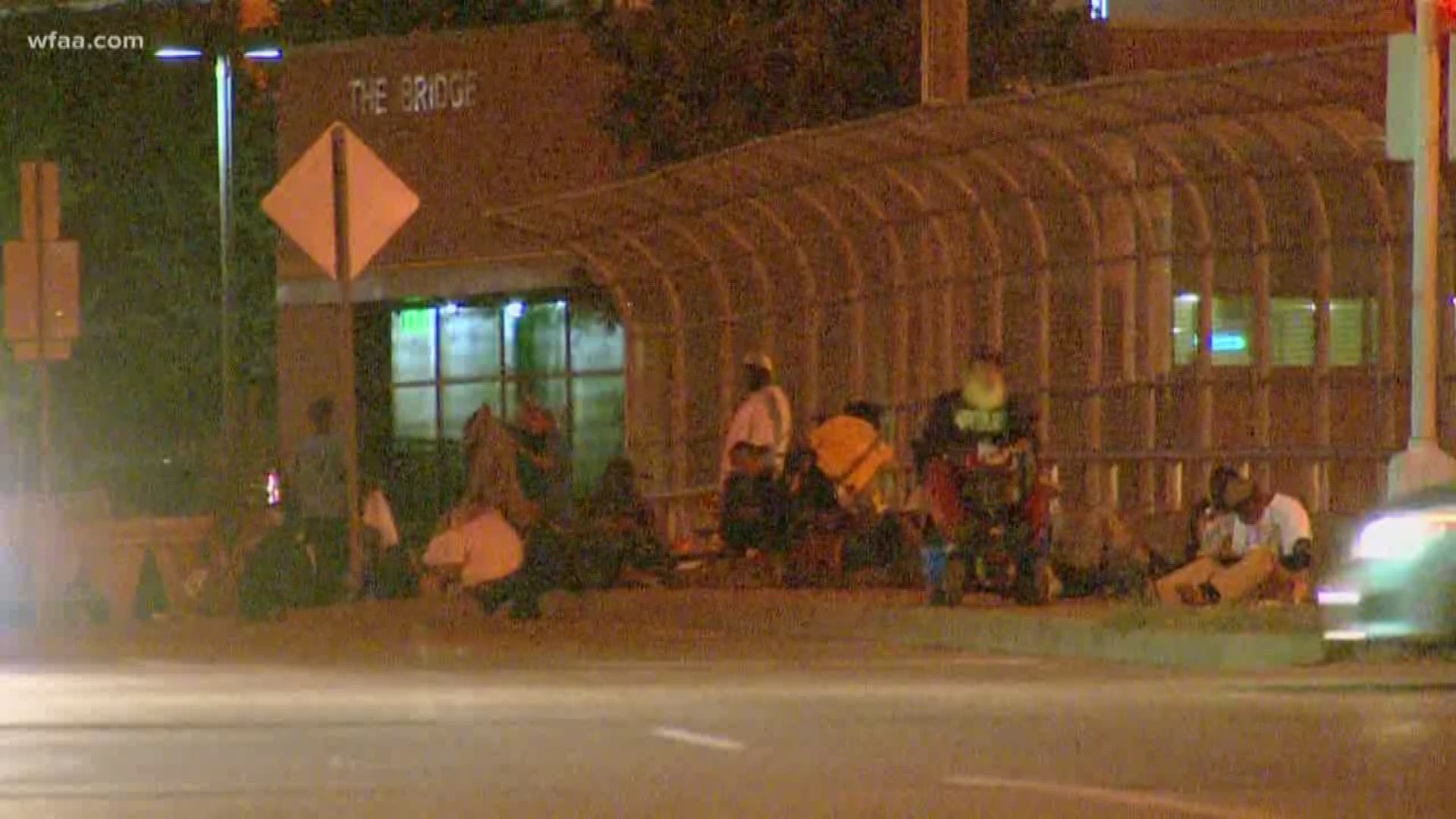DALLAS -- No one has to tell Mike Galvin the homeless population in Dallas is growing.
“They're here all day,” he says. “They sleep here all night.”
He sees it from his storage business just across from the Stewpot. He has orange cones handy to put around the homeless who fall out in the streets from K2.
“It's a sad, sad situation,” he says.
Galvin can also see with his own eyes that the city is failing in his approach to the homeless problem, a fact born out in a scathing 55-page audit issued by City Auditor Craig Kingston. The audit concludes the city could potentially lose millions of federal dollars as a result.
“The audit says not only are you probably getting your money's worth, there aren’t controls in place to tell you if you're ever going to get your money's worth,” says council member Philip Kingston. “No one can claim the city has done a good job.”
Kinton’s audit found that the city is not spending federal dollars in a timely manner and that it resulted in the city having to return about a half a million dollars in fiscal years 2015 and 2016. The city received $1.1 million less in the fiscal year of 2016 than two years earlier.
That audit found the city does an “inadequate” job overseeing the Metro Dallas Homeless Alliance, the private, non-profit charged with carrying out the city’s homeless services.
In particular, the audit paints a grim picture of the effectiveness of MDHA’s new centralized recordkeeping system, known as the Homeless Management Information System. It says the system is “incomplete” and “covering only 30 percent of the beds dedicated to the homeless.”
"As a result, the city cannot fully evaluate how the homeless response system's resources are contributing to reduce homelessness,” the audit says.
The audit also says the system is failing the homeless providers, such as The Bridge, which annually serves 7,000 clients who rely on it. The homeless providers under federal rules are required to enter their information into the system or risk losing federal dollars.
“The HMIS implementation put the homeless emergency shelters’ funding and financial viability at risk,” the audit says.
The auditor says the issues put The Bridge at the “brink of temporary closure twice in 2017 due to challenges” with the implementation of the new computerized record-keeping system.
Sam Merten, a spokesman for The Bridge, said in a statement that “HMIS-related issues beyond our control caused significant challenges for our organization.”
In a nine-page statement, MDHA director Cindy Crain seemed to point the finger at The Bridge. It pointed out that MDHA and The Bridge were once the same organization until they split in 2011.
“The split was more like a divorce,” Crain wrote. “And for whatever reason, data sharing became the custody battle. … The Bridge leadership fought participation in HMIS.”
She says in her statement that The Bridge decided in May to “they were pulling the plug and ordered their data to be deleted.” A few weeks later, The Bridge had to hire a “pool of temporary data workers that my staff trained and worked with for weeks to enter” the data back into the system, Crain says.
According to the audit, MDHA hired a company to create the software system with no experience in creating a complicated system to track homeless services. Further, it was purchased through a noncompetitive process, which the audit says violated federal rules and could result in the loss of federal dollars.
MDHA officials told the auditor that they did not think a “competitive procurement process was required,” the report says. The city auditor says MDHA did not retain documentation explaining how it chose the contractor.
Crain’s nine-page statement did not address the hiring the of the contractor other than to say the board approved it.
Kingston and other council members say it’s time for a change in leadership at MDHA or even for the city to consider finding a new partner or bringing the work that MDHA does in-house.
“It shocked me that MDHA is really operated in an unprofessional manner,” Kingston says.
Mayor Mike Rawlings downplayed the findings of the report, saying they are the same problems that city officials have been aware of for about 18 months. He added that the record-keeping has to be done “right so we can make sure we get our money.”
He also says the city lost about $3 million in federal dollars because agencies and the city are not working better together.
Rawlings says he’s directed the newly created Homeless Commission to come up with a plan within six months to address the city’s growing homeless population.
But Kingston and other council members say it’s time for new leadership at the homeless alliance.
“She talks a lot and doesn’t do anything,” Kingston says.
The mayors says not so fast.
“I believe that everybody's always looks for somebody's head to roll on problems and that just usually is not the answer,” Rawlings said.
Crain, in her statement, said that she is “passionately proud of our work to date that has resulted in a performance-driven, accountable, coordinated system.”
Beyond the audits are business owners like Galvin. He just needs the city get its act together so what he and his customer see every day doesn't look like a homeless encampment.
CEO Response to the City of Dallas Audit of Homeless Response System Effectiveness by wfaachannel8 on Scribd
Dallas City Report: Audit of Homeless Response System Effectiveness 12-08-2017 by wfaachannel8 on Scribd
Metro Dallas Homeless Alliance: Open Letter to the Mayor and City Manager of the City of Dallas by wfaachannel8 on Scribd

